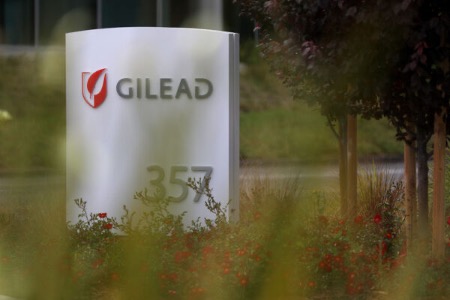Gilead Sciences Signs Yet Another R&D Alliance for Multi-Target Cancer Therapies
March 8, 2024
Source: drugdu
 591
591
Gilead Sciences’ partnership with Merus could yield novel antibody drugs capable of binding to three targets simultaneously. The alliance follows a collaboration that Gilead started last year with Tentarix Biotherapeutics, a startup also developing antibodies that bind to multiple targets.
By FRANK VINLUAN
 Bispecific antibody drugs have shown that binding to two targets simultaneously can be a powerful and effective way to treat cancer. Binding to three targets could be even better, and Gilead Sciences is turning to biotech company Merus to find out.
Bispecific antibody drugs have shown that binding to two targets simultaneously can be a powerful and effective way to treat cancer. Binding to three targets could be even better, and Gilead Sciences is turning to biotech company Merus to find out.
Under the collaboration agreement announced Wednesday, Gilead is paying Merus $56 million up front and making a $25 million equity investment in the biotech.
Netherlands-based Merus focuses on developing antibody therapies that bind to two or three targets at the same time. This capability could block multiple receptors that drive tumor growth and survival. It could also coax a patient’s immune cells to kill tumors. So far, the Merus technology has produced seven programs—all of them bispecific antibodies.
Merus’s lead program, petosemtamab, is designed to target the cancer proteins EGFR and LGR5. This drug candidate is currently in a Phase 1/2 clinical trial evaluating it as a second-line treatment for head and neck squamous cell carcinoma; a separate Phase 1/2 study is testing it as a first-line therapy in this cancer as part of a treatment combination with Merck immunotherapy Keytruda.
The targets of the Gilead alliance were not disclosed. The collaboration covers two trispecific antibody programs. Merus will lead early-stage research for both. If Gilead exercises its right to license these programs, it will take on responsibility for their R&D as well as commercialization, if they receive regulatory approval. Flavius Martin, executive vice president of research at Gilead, said in a prepared statement that multi-specific antibodies offer the potential to drive robust anti-tumor immune responses with better efficacy and safety.
Option and milestone payments under the Gilead deal could bring Merus up to $1.5 billion. Merus would also receive royalties from sales of approved products. Merus has the option to pursue a third program. If it does, the biotech also has the option to share equally in the profits and losses of this potential therapy in lieu of future milestone and royalty payments.
In a note sent to investors, William Blair analyst Matt Phipps wrote that the Gilead deal expands Merus’s ongoing collaborations with large biopharma companies (Eli Lily and Incyte are among its other partners) while also strengthening the biotech’s balance sheet. The partnered programs are all bispecific antibodies. Phipps notes that the Gilead deal is the first Merus alliance focused on trispecific antibodies.
It’s not the first time Gilead has partnered on multi-specific antibody therapies. Last summer, Gilead committed $66 million to begin a partnership with Tentarix Biotherapeutics, developer of drugs that bind to multiple targets simultaneously. The startup said this multi-target capability improves imbues an antibody therapy with multiple functions as well as greater selectivity. The targets of this alliance were not disclosed.
Photo: Justin Sullivan/Getty Images
Read more on
- Phase III Clinical Trial of Recombinant Staphylococcus Aureus Vaccine Progressing Normality January 21, 2026
- Its drug marketing application for injectable iza-bren has been accepted January 21, 2026
- Kain Technology withdrew a drug registration application, resulting in a profit reduction of 111 million yuan in 2025 January 21, 2026
- Received Notice of Approval for Drug Clinical Trial January 21, 2026
- Breaking news! AstraZeneca to be delisted from Nasdaq. January 21, 2026
your submission has already been received.
OK
Subscribe
Please enter a valid Email address!
Submit
The most relevant industry news & insight will be sent to you every two weeks.



